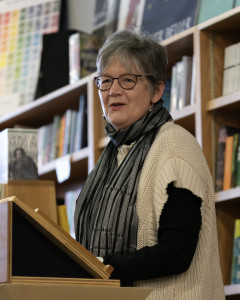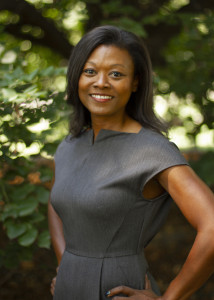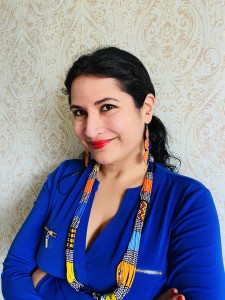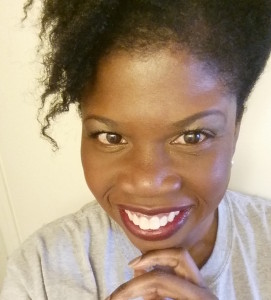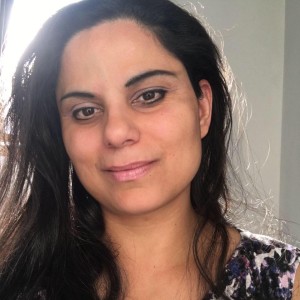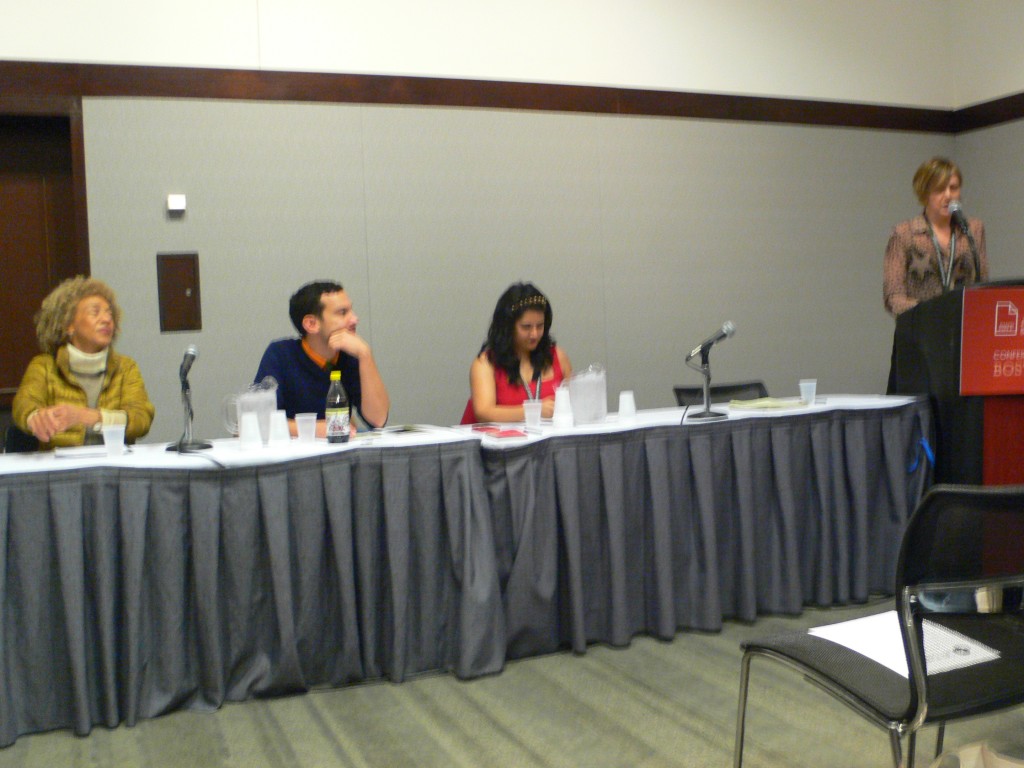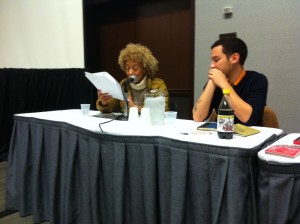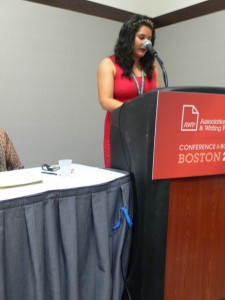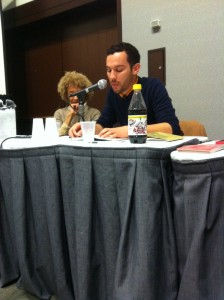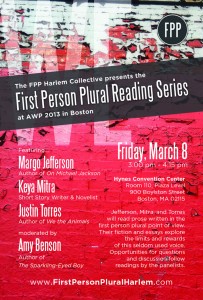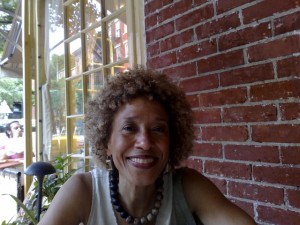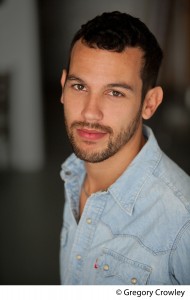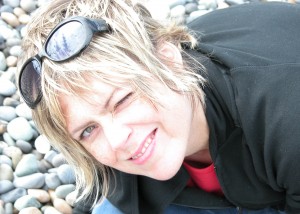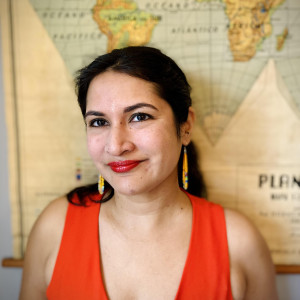 “Regardless of whether we are writers or not, we have the power to shape our own narratives,” says Keya Mitra in her new FPP Interview. Read further to learn about her current writing projects earning accolades, how hiking 400 miles of the Camino de Santiago pilgrimage in Spain impacted her body as well as her work, how she eloped during the pandemic, and so much more. Join us Sunday, March 7, 2021, to hear Dr. Mitra read with Terry Bohnhorst Blackhawk, Jennine Capó Crucet, Koritha Mitchell, and Rhonda Welsh. Admission is free. Zoom login information will be shared prior to the event. Please RSVP here.
“Regardless of whether we are writers or not, we have the power to shape our own narratives,” says Keya Mitra in her new FPP Interview. Read further to learn about her current writing projects earning accolades, how hiking 400 miles of the Camino de Santiago pilgrimage in Spain impacted her body as well as her work, how she eloped during the pandemic, and so much more. Join us Sunday, March 7, 2021, to hear Dr. Mitra read with Terry Bohnhorst Blackhawk, Jennine Capó Crucet, Koritha Mitchell, and Rhonda Welsh. Admission is free. Zoom login information will be shared prior to the event. Please RSVP here.
You were just named a finalist for the PEN/Bellwether Prize for Socially Engaged Fiction for your novel Human Enough. Would you tell us about this manuscript and how you first knew you had to write it?
Human Enough is the story of Tasha Patel, an Indian-American immigrant in Portland, Oregon, and her father—with whom she shares a medical condition that causes werewolf-level excessive hair growth. When shaven, they look normal, even beautiful. But when the father back in India gets dementia and leaves the house ungroomed, his neighbors mistake him for an animal and stab him to death. Tasha stops shaving in her grief. Meanwhile, video of the killing goes viral, evoking a visceral sense of complicity in all who watch. It reaches Portland during the 2017 Muslim Ban protests and sets off a solidarity movement centered on now-furry Tasha. People march in full-body suits of fake fur—covering their identities and shedding the weight of their ethnicities. Romance, violence, and a 221-mile pilgrimage ensue.
Right after the 2016 election, I felt more fearful about being a second-generation immigrant than I had in decades. I had six weeks to process my reaction before a scheduled brain surgery that threatened to leave me brain damaged. During that month-and-a-half, I wrote a very rough draft of the novel. When I recovered, I revised the story for years, honing it as a dark, avant-garde comedy. Then after the murder of George Floyd, I deleted the title and 60% of the book and made something sharper, harder, and swifter.
You were also shortlisted for the Dzanc Diverse Voices Prize for your short story collection The Sacred Gifts of Cows and Cheetahs. Please tell us about that project. Is there a particular story from that collection that speaks differently to you from the others? Or speaks differently of you as a writer?
Each story is distinct in its own way, but all the stories share certain themes: trauma, loss, communion, and transcendence. Multiple stories in the collection use idiosyncratic or surprising premises to arrive at essential and universal human truths about suffering and redemption. But I’d say that “The Magnificent Purr” stands out because the premise is particularly far-fetched and comical. A couple attend a retreat in Austin, Texas called The Magnificent Purr. The (very expensive) retreat involves donning cat costumes and refraining from showering, crawling around on all fours, communicating in marriage therapy only through meows, and, ultimately, trying to achieve the elusive purr. Of all the stories, that one might be the most outrageous, and it’s certainly the funniest. Still, it contains some profound moments—the couple attend the retreat in the first place because the narrator’s wife is suffering from a terminal disease, and both are seeking relief and healing. The story was published in the Bellevue Literary Review. That journal features work about illness and healing, and having my work appear in their pages felt so meaningful because the story, while absurdist, is very much about reclaiming our spirits in the midst of pain.
Looking back over your years of writing, are there experiences, or places, that have been particularly impactful on you and your writing, experiences or places that at the time, you didn’t perhaps know were making an impact?
In 2018, I hiked 400 miles of the Camino de Santiago pilgrimage in Spain—roughly 20 miles a day for three weeks. I started the pilgrimage alone but made friends with other hikers and, alongside them, suffered from blisters and foot infections—everything you’d expect from long-distance hiking. As my body broke down, I talked to myself—quite a bit. Using my iPhone voice notes, I composed a memoir and dictated a hundred pages for the next draft of Human Enough. But more than the pages, I was transformed by the communal suffering and joy, and the sense of communion that came out of that. My fellow pilgrims almost all experienced pain, mourning, and/or displacement before embarking on the hike. I’ll never forget the openness of the conversations I had during that time, and the sense of connection we all experienced in the midst of our struggles. That transcendence has informed a lot of my writing—my fiction and nonfiction—since.
As a longtime professor of creative writing, is there guidance you’ve offered others that feels particularly true right now?
Regardless of whether we are writers or not, we have the power to shape our own narratives. A story that seems disempowering can be reframed to one that uplifts—James Baldwin’s “Sonny’s Blues” is a wonderful example. In that short story, Baldwin writes exquisitely about generations of pain and prejudice, and yet he ends with the story with a moment of connection and hope without losing sight of the ongoing nature of struggle.
I also emphasize, in both my literature and creative writing classes, that we need a diversity of stories—multiple perspectives on the same world, on ourselves and the consequences of our actions and the possibilities we may not know how to see on our own.
I show Chimamanda Ngozi Adichie’s TED talk, “The Danger of the Single Story” to nearly all of my classes. Now more than ever, her words about the capacity of language to both dehumanize and empower feel essential and true. Only through challenging our “single stories” of one another can we connect with greater humanity and empathy.
It is March 2021, the month we mark one year since the first cases of Covid-19 were diagnosed in this country. What about this past year has been most challenging for you? What has given you hope?
It has been a difficult time to be immunocompromised on many levels. My husband and I had to postpone a wedding. We had to devise safe ways to join protests. We had health scares and real emergencies and wildfire smoke that made the outside air unbreathable. But more than anything, the year has underscored how much I have to be grateful for. In August, my husband and I eloped in the mountains during a backpacking trip in the Wallowas (Oregon). We wouldn’t have gotten married that way without the pandemic, and yet it was one of the most joyous and otherworldly experiences of my life. We’ve been newlyweds on lockdown, and all this upheaval has brought us closer.
I’ve also been amazed by the resilience, good will, and creativity of those around me, particularly in the teaching profession. It’s inspiring.
What does the future hold?
So many hopes.

